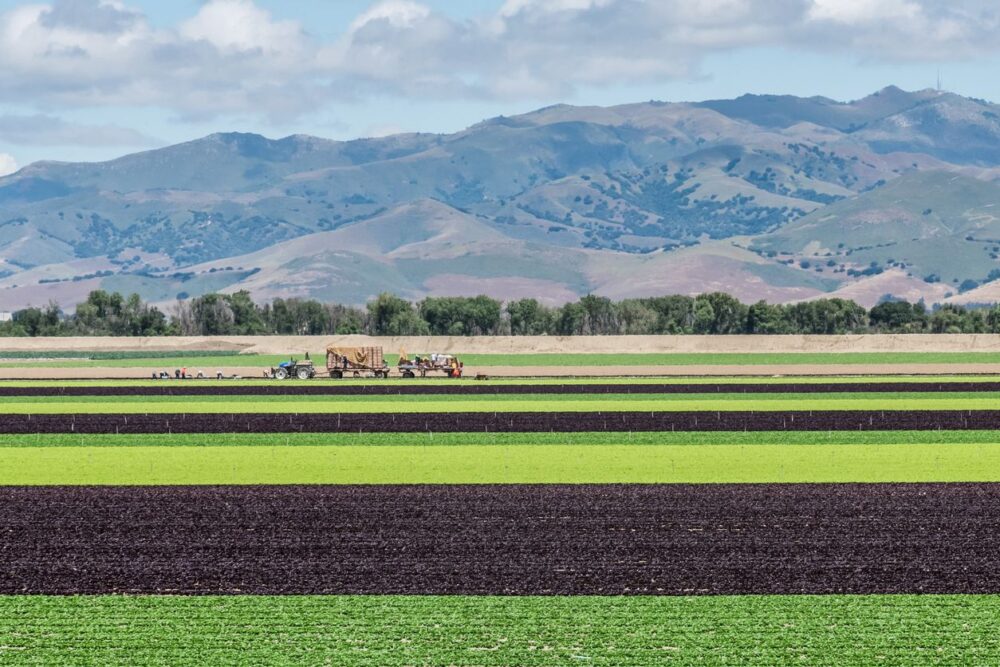Population growth, increasing pest outbreaks and demand for cleaner, higher-quality foods are adding pressure to an already troubled food system in the 21st century. At the same time, inflation and geopolitical conflict have driven the price of inputs up, straining growers’ budgets.
Many growers are now turning to biologicals — crop production and protection tools derived from natural materials or naturally occurring processes — as an alternative.
The global market for biologicals is expected to grow from $11.66 billion in 2022 to $29.31 billion by 2029. North America is currently the largest market, though South America is expected to grow the fastest.
As the number of biologicals products and services increases, growers and agribusiness professionals alike must build more awareness and understanding of these products’ capabilities as well as the broader market.
Building resilience in the ‘Salad Bowl of the World’
Enter the Salinas Biologicals Summit, co-presented by Western Growers Association and New Zealand-based agrifoodtech consultancy Wharf42, taking place June 20–21 in California.
“Biologicals are growing at double digits and expected to surpass chemical pesticides within 20 years,” notes Pam Marrone, founder and CEO of Chestnut Bio Advisors. “The 2023 Salinas Biological Summit will allow California growers the opportunity to look at innovations in biologicals on a global basis.”
Sometimes called “the salad bowl of the world,” the Salinas Valley region of California is home to much of North America’s specialty crop production, including leafy greens, strawberries and tomatoes, as well as tree nuts like almonds.
However, the region is also in danger from the impacts of climate change such as rising sea levels and higher temperatures. These things coupled with increased demand for nutritious, affordable food has paved the way for biologicals that can improve both crop yield and protection.
Salinas Biological Summit was designed to address the needs of multiple stakeholders in the specialty crops industry: growers, investors, regulators, startups, large agrifood corporates, and dealers, amongst others. These groups will be able to gain a better understanding of the benefits of using biologicals as well as where the market is headed and how to choose the right products and services in an increasingly crowded market.
“Growers from California, the nation and the world will all benefit from the 2023 Salinas Biological Summit. New ways of controlling plant pests and diseases with new tools will help maintain healthy crops while increasing on-farm sustainability,” says Don Cameron, president of Terra Nova Ranch.
Event sponsors include some of the biggest names in agriculture: Syngenta, Driscoll’s, Bayer, and Certis Biologicals.
Meanwhile, event co-host Wharf42 consults internationally to help scale New Zealand agribusiness solutions. Dennis Donohue, director of Western Growers Center for Innovation & Technology, says to expect attendees and panelists from Australia, Latin America, South Africa and other parts of the world.
Opportunity for investors
The two-day event will unfold in three parts.
Part one will be all about “the current state of affairs” in biologicals. California’s Roadmap to 2050, which includes goals on sustainable pest management, net-zero emissions and other eco initiatives, will frame the conversation.
The event will also cover the current set of issues around biologicals from the perspective of the growers.
Investors are also an important part of the conversation. Ag biotech, an AgFunder-defined category made up largely of biological farm inputs alongside advances in genetic engineering, was one of the few investment categories in 2022 to actually bring in more funding in 2022 amid the general slump versus 2021, raising $2.7 billion, according to AgFunder’s Global Agrifoodtech Investment Report 2023. [Disclosure: AFN’s parent company is AgFunder.]
But as Donohue, notes, these investors are at a little bit of a crossroads: “They’ve put a lot of money into the biologicals space, but they need to get a better handle on mitigating risks and how to better evaluate companies.”
“We think this is a nice opportunity for the investment community to hear everything from the growers themselves and other folks who have experience in this space,” he adds.
Finally, the event will address where the biologicals industry should go in the future.
Much of this portion of the event will include extended session breakouts organized by key commodities and key diseases — strawberry growers looking for specific solutions or lettuce producers battling the Impatiens necrotic spot virus (INSV), for example.
“The idea is to really be interactive because we don’t want the event to just be a ‘talk fest,’” says Donohue.
Day 2 of the Summit will also include the official launch of the Global Biological Accelerator, which will be based out of the Western Growers Innovation & Technology Center in Salinas. Those chosen for the accelerator will be able to trial solutions in the field in addition to networking and mentorship opportunities. Western Growers will reveal more information at the event.
Salinas Biological Summit takes place June 20–21, 2023. Buy tickets to the event here.





